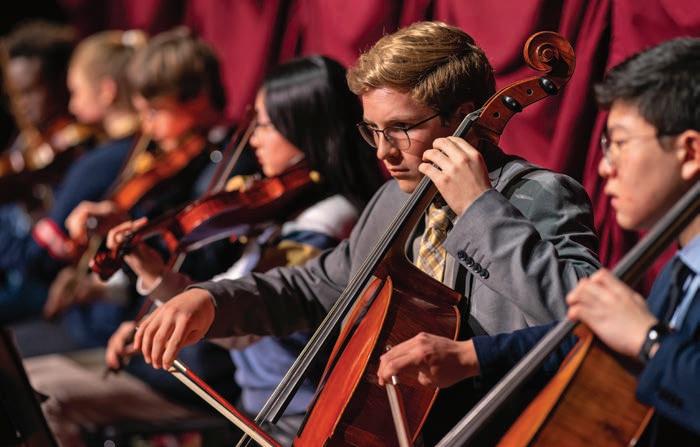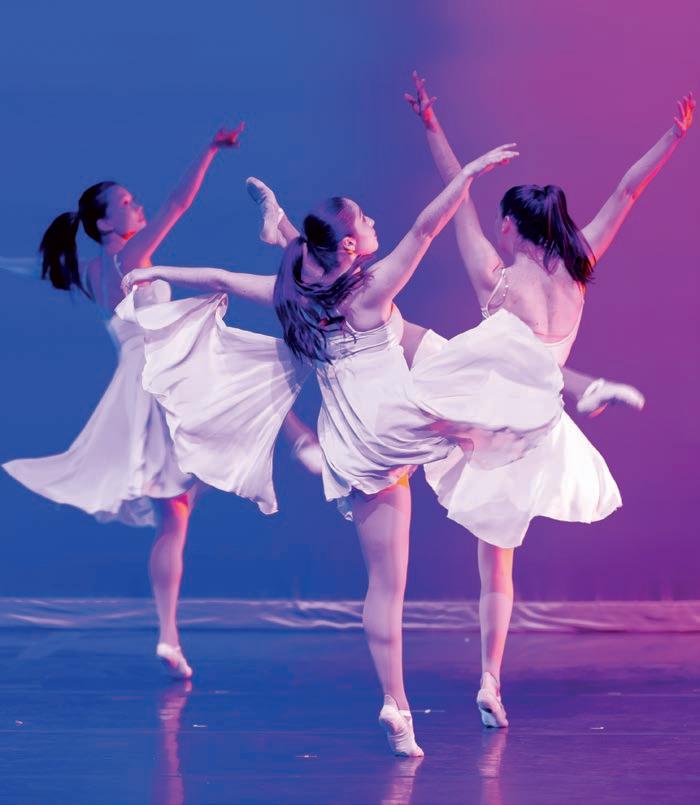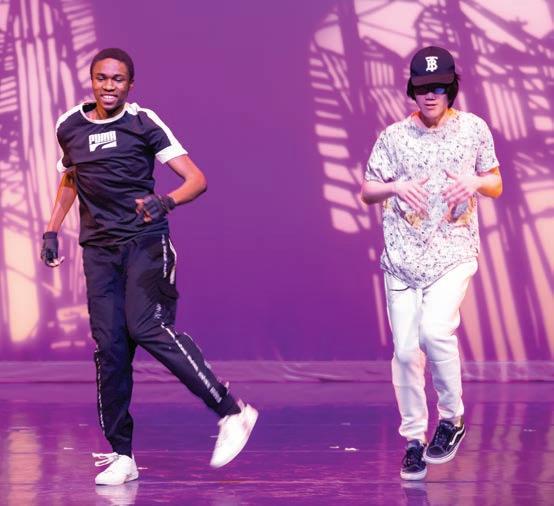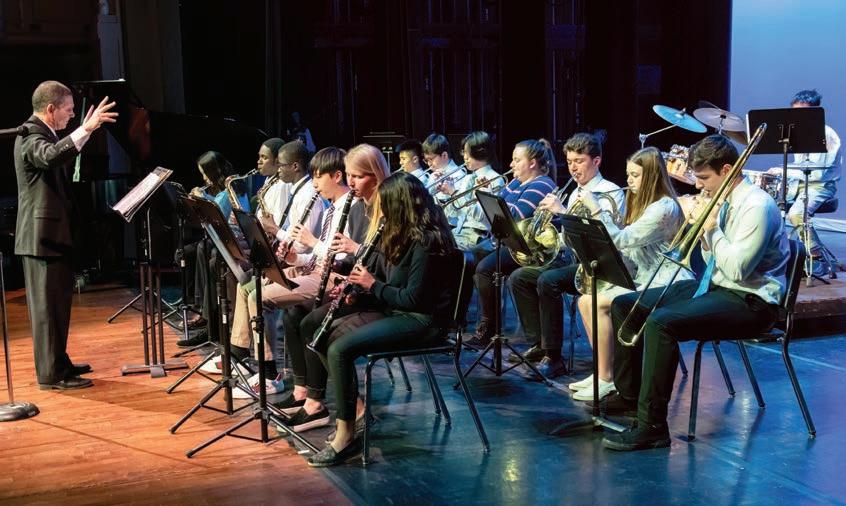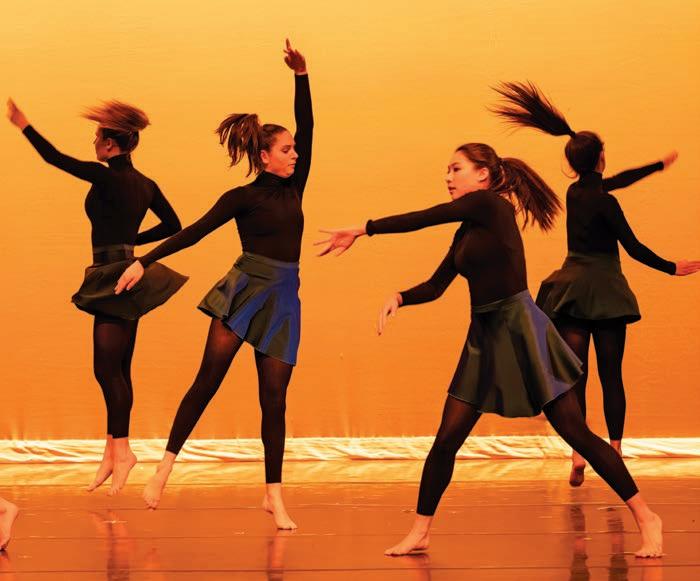
17 minute read
Hill Headlines
New Dean of Faculty
Westminster faculty member Jessica Keough will assume the position of dean of faculty July 1. She will succeed the current dean of faculty, Mark de Kanter ’91, P’19, ’22, who will become associate head of school on the same date.
Appointed to the Westminster faculty in 2008, Jess has filled many roles during her tenure, including history teacher, dean of students, dormitory head, associate admissions director, head coach of First Girls’ Ice Hockey and student advisor. In 2017, she won the Swayze Award, presented to a member of the faculty for outstanding contributions to the life of the school. In addition, Jess has served on the faculty at Pomfret School and Hebron Academy.
“Jess’ passionate energy and commitment to excellence across all of her endeavors inspires students and colleagues alike,” said Head of School Bill Philip in making the announcement. “Underscoring her highly respected stature in our school community, Jess’ colleagues rely on her guidance, both informally and formally, for example, by frequently inviting her to participate in their professional growth reviews.”
Jess earned a B.A. at Trinity College and a Master of Arts in Liberal Studies at Wesleyan University. While at Trinity, she completed a legislative internship program at the Connecticut state capitol and was named a Long Walk Society Scholar. She also captained the field hockey and ice hockey teams. Jess is a graduate of Tabor Academy, where she captained the field hockey, ice hockey and lacrosse teams.
As a corridor supervisor, Jess lives in Kelter House with her
Jessica Keough
husband, Jay, who serves as associate director of admissions, and with their sons, Francis and Patrick.
“Jess deserves our appreciation for her already remarkable legacy of accomplishment and our enthusiastic congratulations for the leadership role she will now assume,” said Head of School Philip.
“I am grateful for the various opportunities for growth I’ve had at Westminster over the years,” said Jess. “I am humbled by this appointment, yet at the same time, eager to put my mark on the position. My vision of the role embraces a holistic approach. I will draw on my experiences as a teacher, advisor, coach and dean of students to be a visible, supportive leader and a resource for our faculty. I look forward to the good work ahead.”
Large Delegation Participates in Yale Model U.N.
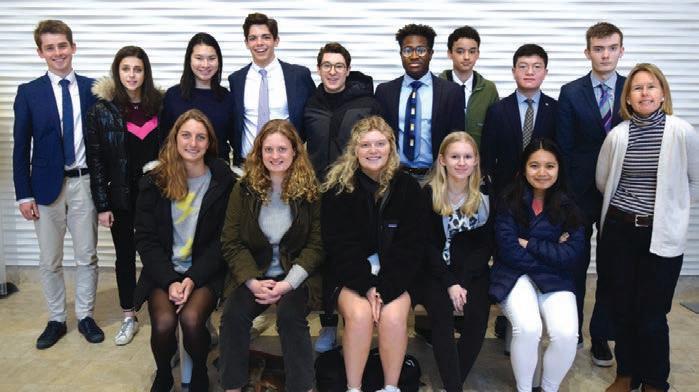
Students in Westminster’s Model U.N. headed to New Haven Jan. 23 to participate in the 46th Yale Model U.N. conference. The 23 Martlets had spent weeks preparing. Their committees represented a broad range of issues, from the past to the present. The group lucked out with a number of assignments to smaller, specialized committees that permitted the experienced crew ample opportunities to participate.
In addition to the committee sessions, highlights of the weekend included Yale Day events, which allowed students to sample Yale academic and cultural life, and a group dinner at Prime 16 in New Haven.
Many delegates put forth a great deal of effort in their committees and took leadership roles in dealing with their assigned topics. Two students distinguished themselves this year: Qifei Min ’22 in the Arab League earned outstanding delegate honors, and Daniel Pinckney ’20 in the CDC crisis committee earned best delegate honors.
“Once again, it was a rewarding and enriching experience for the Martlet MUNers,” said Betsy Heckman, the group’s advisor and head of the History Department.
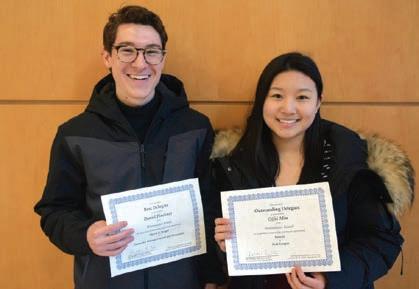
Thinking About Other Communities
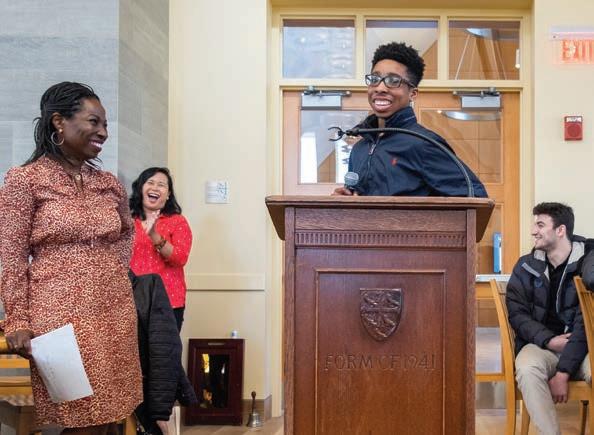
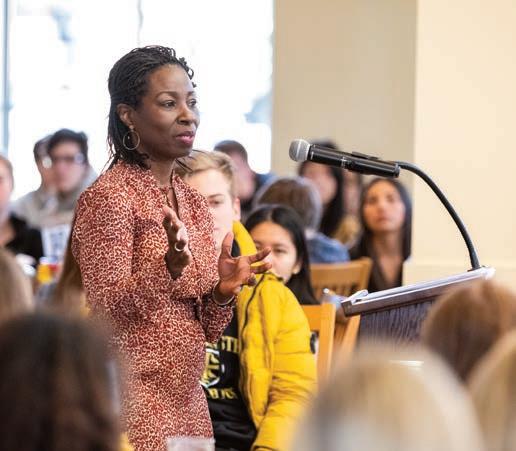
Westminster held an all-school Diversity Day Jan. 30. The morning kicked off with a faculty meeting where Lisa McGrath, director of diversity and multicultural affairs, who organized the day’s events, welcomed everyone and introduced guest speaker Princess Sirleaf Bomba, an advocate for social justice and education for nearly 25 years.
Princess began her presentation on the topic “Our Cultures, Our Perspectives and Our Impact” by saying: “I will share things I have learned along the way that are more personal and not all research driven. I hope this will resonate with you.” She involved faculty members in group discussions about race and culture. “Who is in our circle and who we are with shape how we see the world,” she said. She shared highlights of her career and stories about those with whom she has worked. She encouraged faculty members to “break the silence” by opening up more with others and reaching out to people of color. “Hidden identities matter,” she emphasized. She also underscored the importance of demonstrating empathy to success in working with students. “Sharing your identity will help you communicate with them,” she said. “Children only seek help from the people they trust.”
Princess is the director of unity and diversity at The Wheeler School, an independent day school in Providence, R.I. Before that, she was an educational services coordinator for the Department of Children, Youth and Families and began her career as an admissions professional for Rhode Island College, where she earned a bachelor’s degree and an M.A.
Following the faculty meeting, students gathered in Gund Dining Room to sit with their advisory group. They responded to questions and played some games that highlighted how first impressions can be wrong and the importance of getting to know others in order to build a stronger community. Princess shared details about her life in Monrovia, Liberia, as a child, the violent coup in her country and how her “life was turned upside down” when she came to the U.S. She encouraged the students to tell their story, saying, “We all have interesting stories.”
After the meeting of advisory groups, students attended breakout sessions conducted by their peers and faculty members in Armour Academic Center on a range of topics related to introspection and reflection, identity and connection, community and society, and history and the arts. They then attended an all-school meeting in Werner Centennial Center, where Lisa thanked everyone for their participation in the day’s activities, saying it provided an opportunity to think about other communities. Two excerpts from the film “Girl Rising” were shown under the leadership of the student group All is One Feminist Alliance, and the day concluded with students meeting with their advisory groups once again.
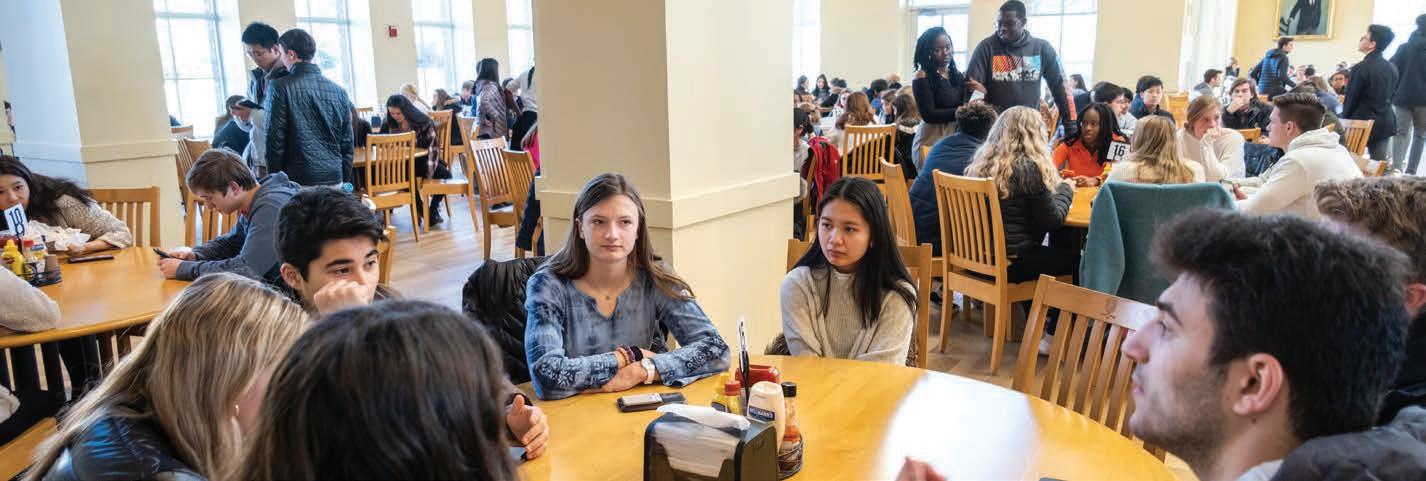
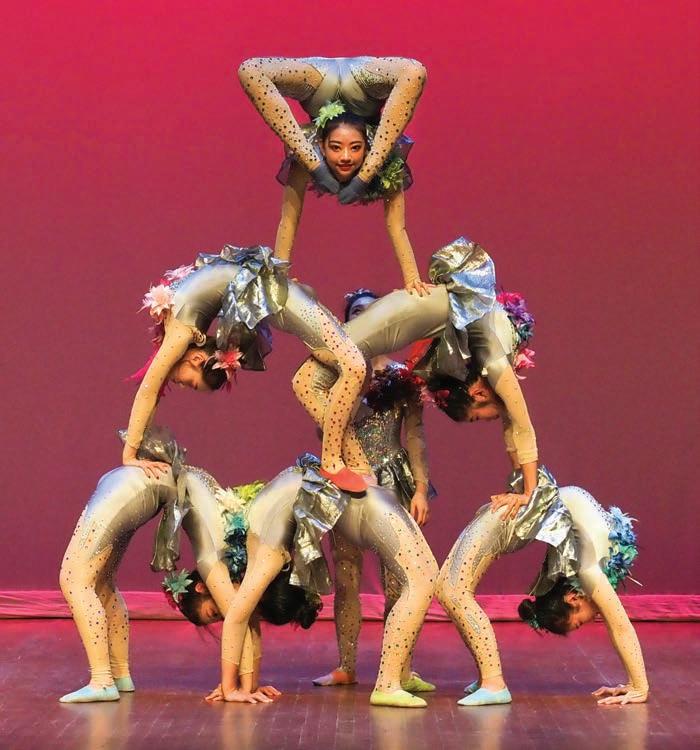
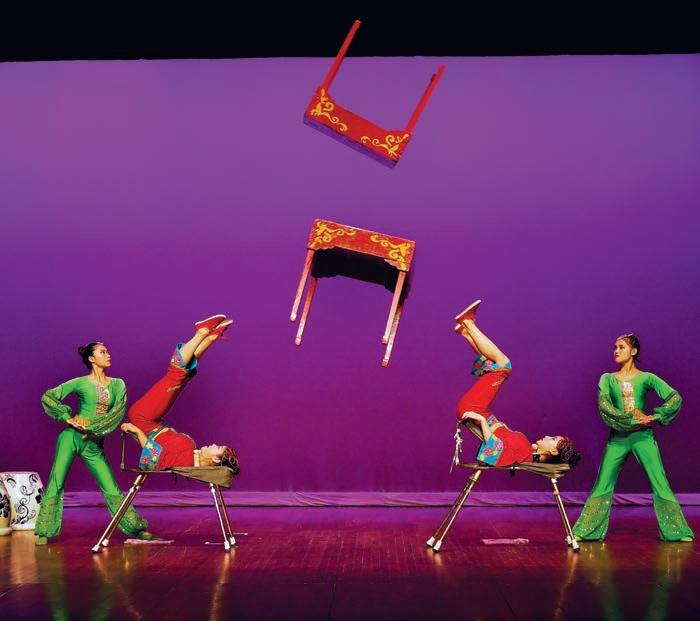
Cirque Mei Gives Awe-Inspiring Performance
Cirque Mei, from the People’s Republic of China, gave an awe-inspiring performance for members of the Westminster community in Werner Centennial Center Oct. 15 as part of the Graham Gund ’59 Visiting Artist Series.
Cirque Mei features traditional and contemporary Chinese circus acts in a colorful and lively celebration of the internationally renowned Chinese circus arts. The performance featured a company of elite circus artists and acrobats showcasing popular Chinese circus routines involving hoop diving, a lion dance, collective bicycle skills, flying meteors, foot juggling with umbrellas, contortion and ladder balancing. The troupe was founded in 1976 and supports a community of more than 130 performers who tour throughout China and the world.
Members of the Gund Family established the Graham Gund ’59 Visiting Artist Series fund in 1991 in honor of Graham Gund ’59 at his 50th birthday. Income from the fund underwrites the cost of bringing outstanding artists to Westminster to enrich students’ understanding and appreciation of the performing arts. The visiting artists perform in Werner Centennial Theater.
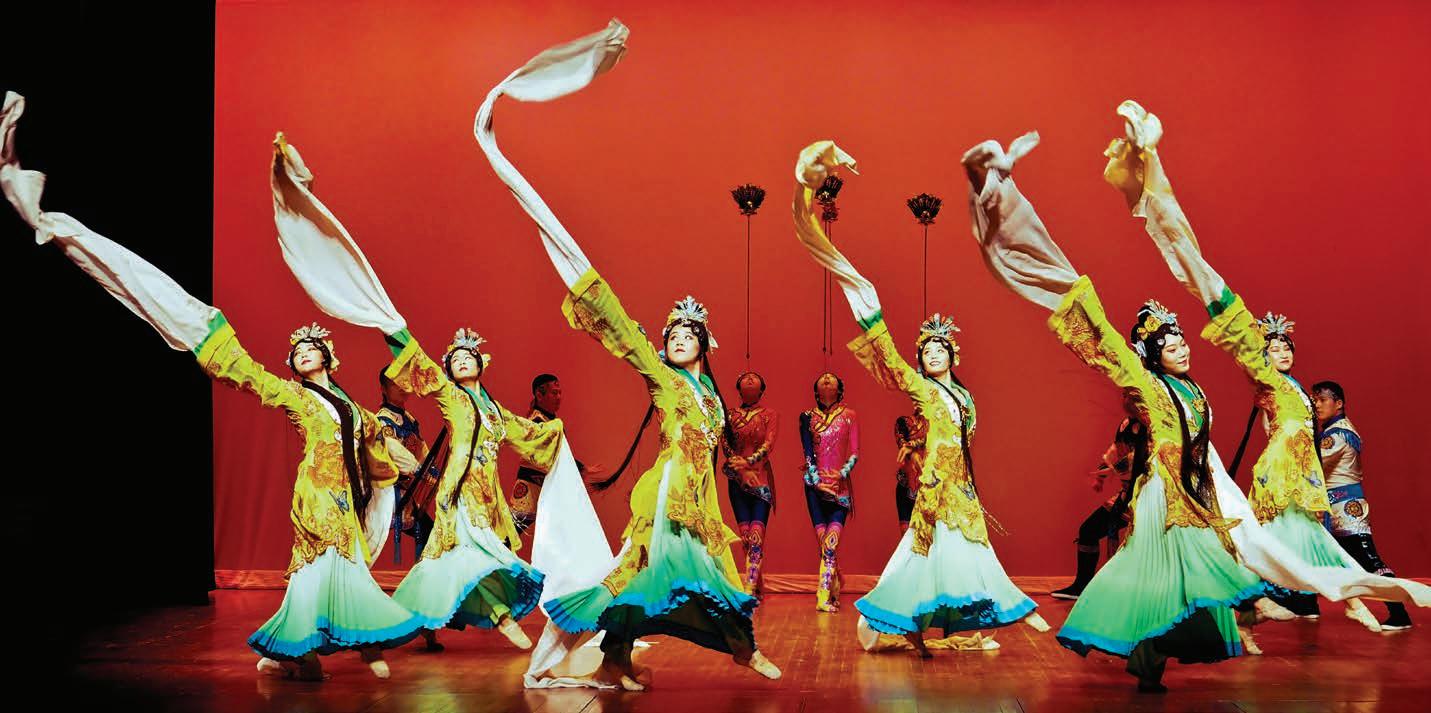
Westminster hosted educators from around the region Jan. 6 for this year’s Westminster Teaching Symposium titled “To College and Beyond: Preparing Students for Life After High School.”
The keynote speaker was Wendy Fischman, project director of Project Zero at the Harvard Graduate School of Education. The mission of Project Zero is to understand and enhance learning, thinking and creativity for individuals and groups in the arts and other disciplines.
Wendy joined Project Zero in 1995 as a researcher with Project Co-Arts, a study of educationally effective community art centers. Since 1996, she has managed various aspects of the GoodWork ® Project, specifically focused on the meaning of work in the lives of young children, adolescents and novice professionals. She has written about education and human development in several scholarly and popular articles and is the lead author of “Making Good: How Young People Cope with Moral Dilemmas at Work.” Wendy co-developed the Good Work Toolkit, a
Wendy Fischman delivers the keynote remarks.
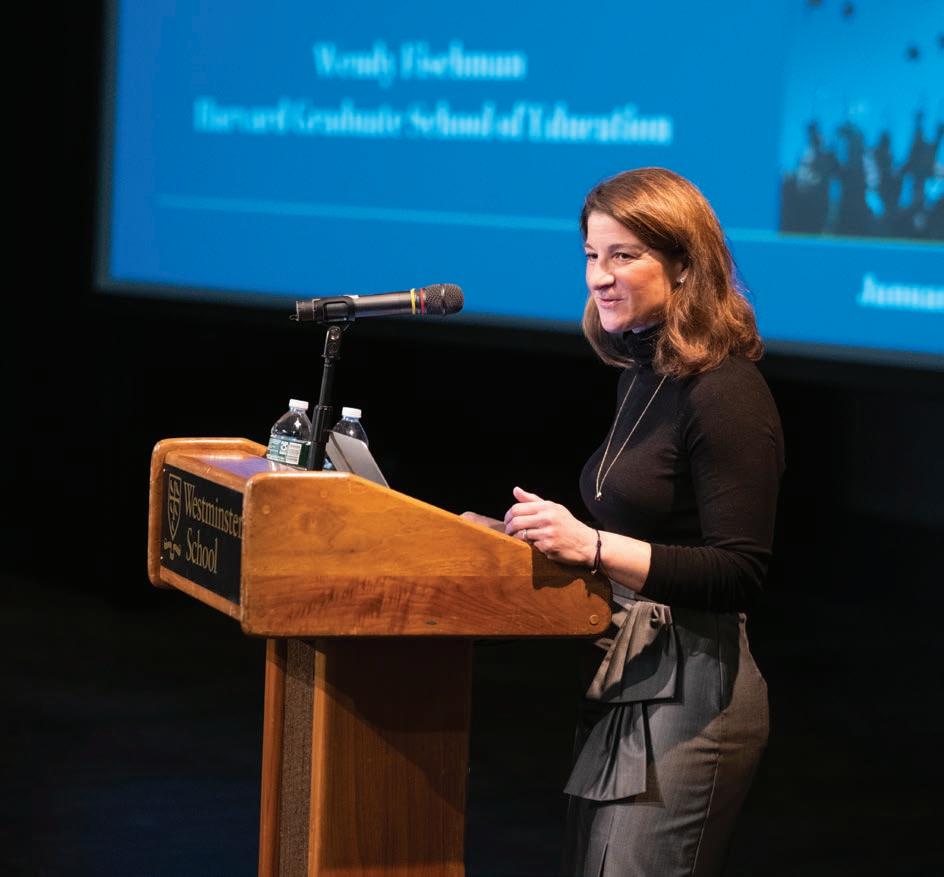
curriculum designed to introduce students and teachers to the concept of “good work.” Most recently, she has been involved in the management of a large, national study on liberal arts and sciences in the 21st century at 10 college campuses.
Before coming to Project Zero, Wendy taught humanities to middle school students and evaluated school reform programs facilitated by a governmentsponsored regional laboratory. She received a B.A. from Northwestern University.
Wendy began her presentation by giving an overview of the Good Project. “I come to you as a researcher and a participant,” she said. She discussed how
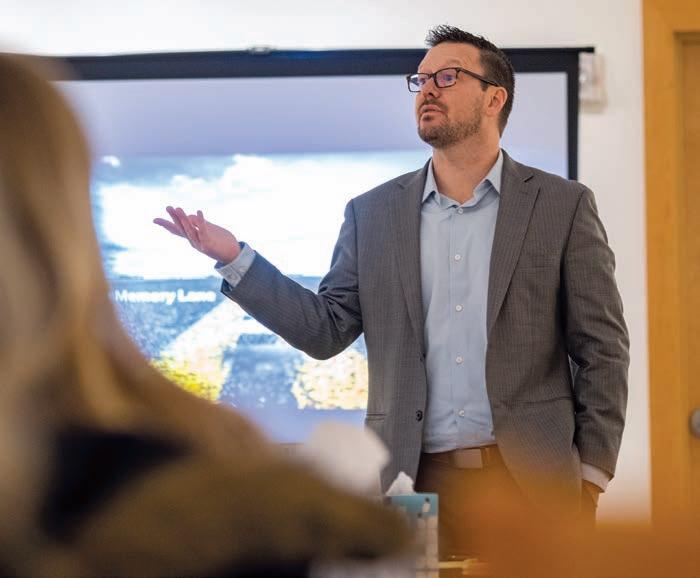
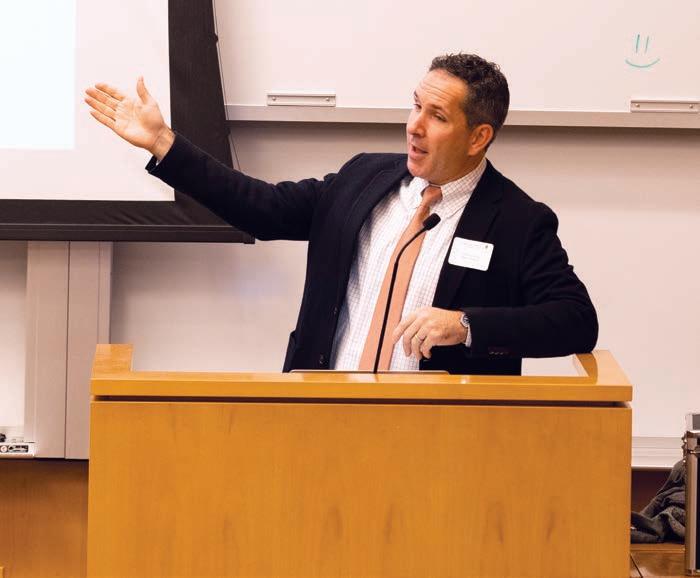
good work is “at once excellent, engaging and ethical.”
“It is important for people to find value in work and enjoy it,” she said. She shared highlights of major findings of the study and the genesis of the Good Work Toolkit. Following this, she discussed a large-scale national study that is documenting how different groups think about the goals of college and the value of a course of study emphasizing liberal arts and sciences. She shared some of the issues identified from the research and offered takeaways for those in the audience.
After her presentation, those attending the symposium had a chance to attend two breakout sessions given by educators on related topics. Nick Pinkerton of Southern Connecticut State University spoke about “How Student Mental Health Trends Inform Our Work Moving Forward”; Joe DiChristina and Jody Goodman of Trinity College spoke about “Helping Students Transition to College”; and Tim Quinn ’96, Amy Rogers and Lesley Skendarian of Miss Porter’s School spoke about “Miss Porter’s School’s Senior Seminar, Designing Your Life: Purpose, College and Career.”
Following the morning’s presentations, participants shared lunch in Armstrong Dining Hall.
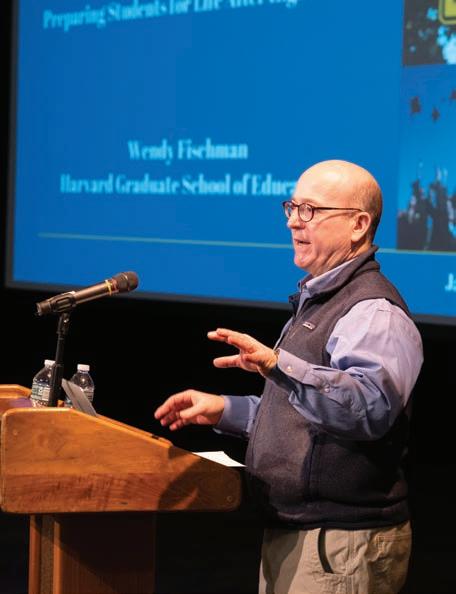
The symposium was sponsored by the Westminster Teaching Initiative (WTI), which was formed in 2010 to enhance teaching and learning at Westminster by encouraging collaboration and dialogue among faculty members and departments about curriculum and pedagogy. The purpose of the symposium is to widen the circle of sharing and allow teachers from area schools to come together, converse and learn from one another. Westminster faculty member Charlie Griffith P’11, ’14, ’17 serves as director of WTI and planned the symposium.
Charlie Griffith P’11, ’14, ’17, who serves as director of the Westminster School Teaching Initiative, welcomes educators to the symposium.
Members of the Westminster faculty concluded the day by further discussing the morning’s presentations in afternoon group meetings. “The hope is the symposium will spark ongoing, productive conversations about what we do and how we do it, and from our follow-up discussions, there is every indication it will do just that,” said Charlie.
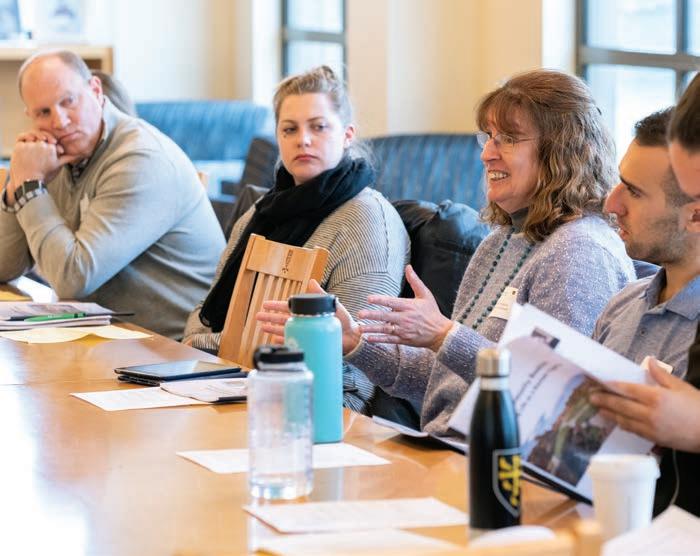
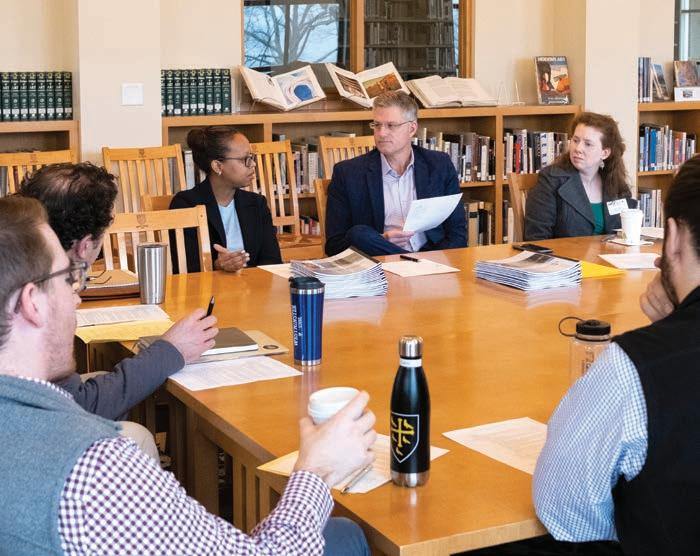
Ross Gay Visits as 20th Westminster Poet

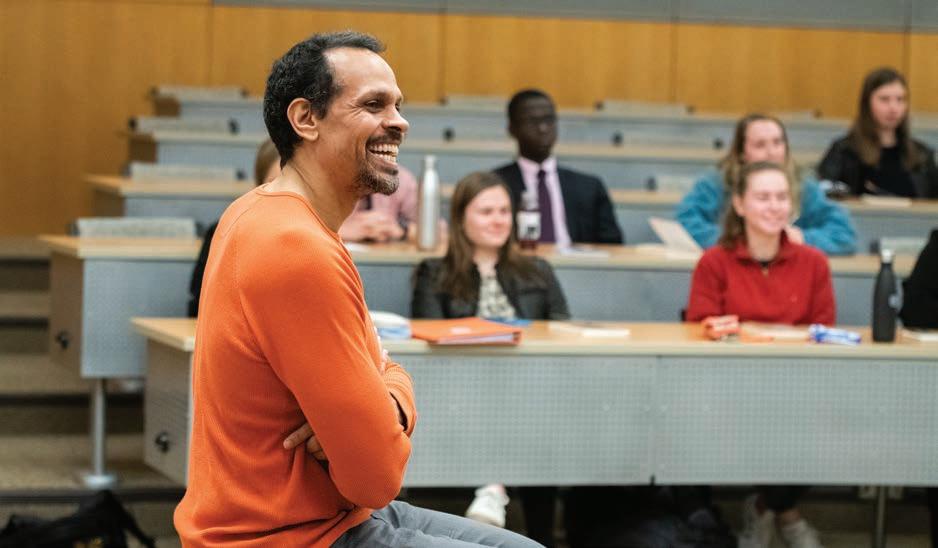
Westminster celebrated the 20th anniversary of the Westminster Poet Series with a visit by award-winning poet Ross Gay March 2-3. Each year, the English Department invites a major poet to campus to give a reading and visit English classes.
A professor of English at Indiana University, Ross is the author of three books of poetry: “Against Which,” “Bringing the Shovel Down” and “Catalog of Unabashed Gratitude,” winner of the 2015 National Book Critics Circle Award and the 2016 Kingsley Tufts Poetry Award. His collection of lyric essays, “The Book of Delights,” which was released last year, received wide acclaim.
Ross is also a co-author of the chapbooks “Lace and Pyrite: Letters from Two Gardens,” and “River.” He is a founding editor of the online sports magazine Some Call it Ballin’, in addition to being an editor with the chapbook presses Q Avenue and Ledge Mule Press. The recipient of numerous fellowships, he earned a B.A. from Lafayette College, an M.F.A. in poetry from Sarah Lawrence College and a Ph.D. from Temple University.
During a reading for students and faculty in Werner Centennial Center, Ross talked about writing daily essays for “The Book of Delights,” and he read a number of the pieces. The book was an all-school summer reading selection last year.
Students also studied Ross’ poems in “Catalog of Unabashed Gratitude,” as well as selections from his earlier books of poetry. During class visits, he responded to questions and read requested poems or essays.
“I really like writing poems and am really lucky,” he told the students. He shared that he is a voracious reader and does not write to a specific audience. “I am writing to anyone who would listen.”
When asked for writing tips, he replied, “A good idea as a writer is to be interested in the question and be motivated by what you don’t know and not what you do know.” He also advised writing about things that surprise as well as from a place of love.
He described how his writing process for poems and prose is different. “I never write poems on the computer, but I will write prose on the computer.” He said that he edits multiple drafts, perhaps as many as 35. “In my first drafts, I get a feeling for something, and then in revisions, I figure out what I want to say.” He added: “I am growing when I am writing. I am always trying to write what I don’t know how to write.”
“One of the great things about the Westminster Poet Series is that all of the 20 poets who have visited Westminster since 1999 have been very good poets with very interesting personalities,” said English teacher Michael Cervas P’96, ’01, ’10, who directs the series. “But without a doubt, Ross Gay was the most engaging of the poets we have had so far. Even students who think they don’t like poetry really liked Ross. His poems are so real and so interesting that young readers don’t even know that they are in the presence of one of the best of the younger American poets. That’s a win-win situation for all of us.”
Izzy Bailey ’21, who takes both AP Literature and Composition, and Study in Creative Writing, said: “I love how Ross Gay is able to use a seemingly simple, colloquial voice to convey complex themes. It’s also super cool how he uses enjambment to show the connectivity of the poem’s themes and just the natural flow of life.”
She also liked hearing him read his poems out loud. “I could hear the places Ross Gay gives a reading to students and faculty in Werner Centennial Center. Ross Gay meets with students in an English class.
in the poem that he meant to be emphasized,” she said. “I really enjoyed how carefree and approachable he was in class. He answered all of our questions and taught us a lot about writing, but also just life in general. The most important thing I learned was that everyone should practice finding the small delights in everyday life.”
Daniel Pinckney ’20, who also takes two English classes, Literature of Values and Study in Creative Writing, found Ross’ poetry both “accessible and profound,” saying it is a balance that is difficult to maintain. “His celebration of the mundanity of the world around us and the large implications of small moments bring joy to every subject he explores,” said Daniel. “His poems, while overwhelmingly positive, do not shy away from difficult and heavy subjects that we must all grapple with. He takes on systemic racism, our fleeting lives and the loss of the natural world with humor and levity, suggesting that we do not ignore these issues, but do not let them consume our lives either.”
Discussions with the poet in class were also rewarding. “As always, it was wonderful to be able to pepper a living writer with questions about their work, process and relationship with writing,” added Daniel. “Mr. Gay’s visit was no different, but he brought a vibrance and energy to explaining and engaging with his work that made his visit to my English classes so memorable. He was able to clarify certain aspects of his poems, offer different insights into the world as a whole and share with us his process of writing. He spoke often of training his delight muscle to recognize the beauty and joy in the mundane world, something I found especially topical in our modern world, where we are inundated with negative news and often overlook the simple delights of our day-to-day existence. It was inspiring to hear from a poet who has grappled with our own modern problems and has found a way, through writing, to share his experiences with the rest of us.”
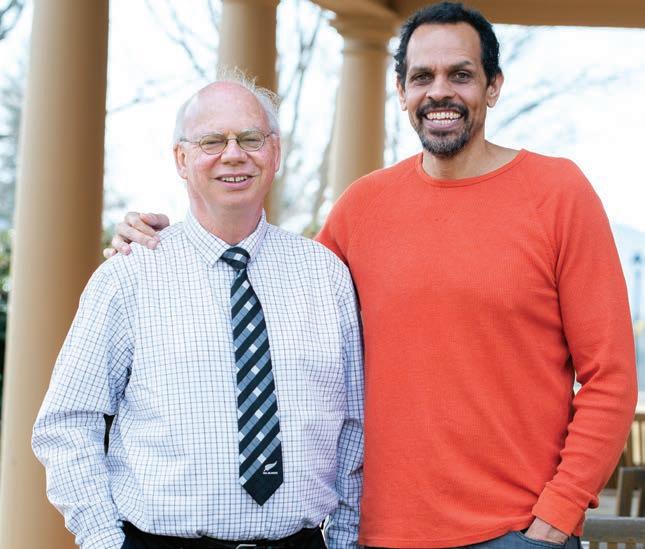
Charlie Graeber ’87
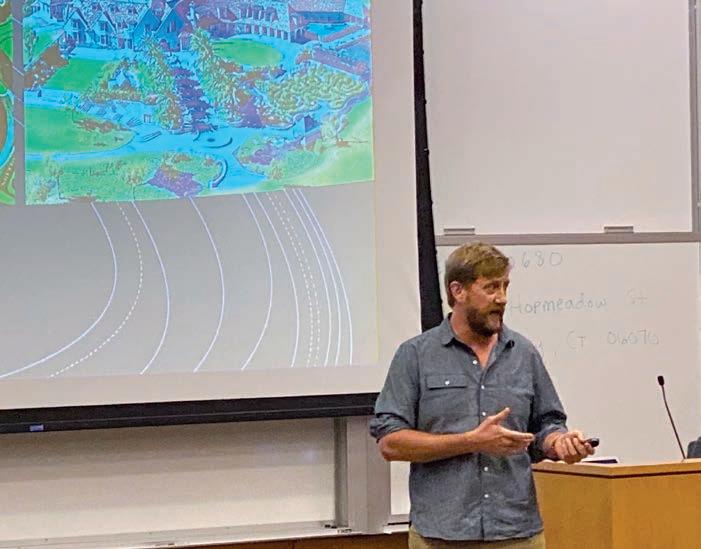
Alumnus Author Discusses Latest Book
Award-winning writer Charlie Graeber ’87 visited Westminster Feb. 18 to discuss his most recent book, “The Breakthrough: Immunotherapy and the Race to Cure Cancer,” which was released a year ago and was shortlisted as the 2019 Medical Book of the Year by the British Medical Association. He is also The New York Times bestselling author of “The Good Nurse,” which is about perhaps the most prolific serial killer in history.
Students in AP Biology, Biology Honors and some other science courses, as well as numerous faculty members, attended Charlie’s talk. He began his presentation by sharing how he got involved in journalism and writing long-form narrative nonfiction after starting out as a poet.
He spoke about what prompted his interest in writing about immunotherapy and cancer and how he conducted research for the book. “I didn’t have a specific interest in cancer and tend to write about what is interesting,” he said. “A large part of my job is finding experts who know a lot. I wanted there to be a story.”
Charlie traced the early history of using the immune system, which was not understood, to try to fight cancer up to the present, where much progress has been made. “We have gone from the world is flat to the world is round in biology,” he explained. He told the students if they are interested in science, it is a great time to be in it. “The door is wide-open.” He shared how there is a lack of awareness of recent advancements in immunotherapy. “The reason this is important is because people don’t know about it,” he said. “It is moving so quickly.” He has been speaking around the country on the topic for the past year.
Charlie is a contributor to The New Yorker, New York Magazine, GQ, Outside, Bloomberg Businessweek, The New York Times, National Geographic Adventure, American Cowboy, Vogue, Men’s Journal and numerous online publications. He has appeared as a guest on “60 Minutes,” “Fresh Air,” “CBS This Morning,” “The Joy Behar Show,” PBS, Bloomberg, Al Jazeera and other media outlets. He has received many prestigious awards for his work.
Winter Performing Arts Concert
Members of the Westminster community enjoyed a concert in Werner Centennial Center March 5 that featured dynamic performances by the Concert Band, Jazz Band, Dance Ensemble, String Ensemble, Chamber Choir and Chorale.
